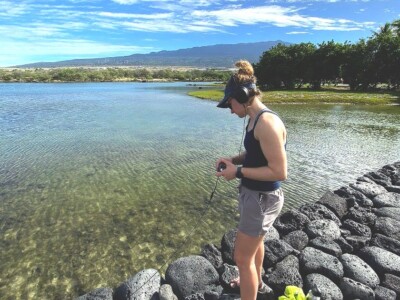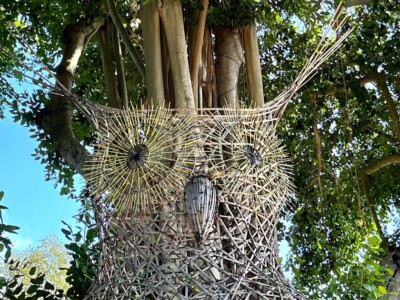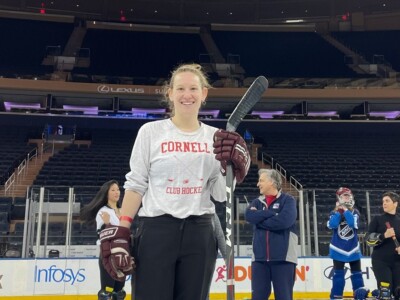Vote now in the 2024 Alumni Trustee Election
For 150 years, Cornellians have been privileged to vote for alumni-elected trustees. Celebrate this year’s milestone by voting between February 1 and 29 to elect two new Cornell University Board of Trustees members. The Committee on Alumni Trustee Nominations has endorsed the following four candidates: Paul M. Cashman ’73, Erica T. Healey-Kagan ’05, Ginger K. So ’79, and David H. Steward ’79.
Read more about each candidate, and learn how they think trustees and alumni can create a sense of belonging and community for all Cornellians.
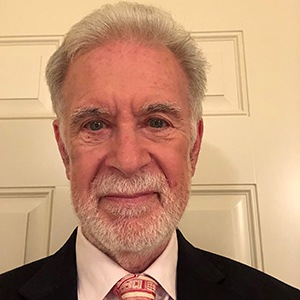 Paul M. Cashman ’73
Paul M. Cashman ’73
What inspired you to choose Cornell?
From an early age, I aspired to be a mathematician, and Cornell had (and has) a strong math department. MIT was my first choice, but after seeing east Cambridge on a college tour, the thought of four years there was just too depressing. I had an older friend at Cornell who liked it a lot, so I chose to come here sight unseen. When I arrived, the sun was shining (incredible!), the Chimes were ringing, and I immediately fell in love with the campus. At Big Red Band camp, I made several friends. Both the friends and Cornell’s natural beauty saved me: my father died unexpectedly during finals of my freshman year, and without the solace of my surroundings and the camaraderie and solicitude of my friends, I don’t know how I would have made it through. Choosing Cornell was one of the luckiest accidents of my life.
Why is it important to ensure Cornell is accessible to all, at an affordable cost? How can trustees and alumni help address this priority?
To not ensure Cornell’s accessibility and affordability would be to break faith with our founder, which for me is a sufficient reason to support this policy. Accessibility and affordability are mission-critical because we can never predict from where or whom the next world-improving ideas will originate. Not supporting the policy would in effect be making a (bad) bet that great ideas will only come from a very small set of students with wealthy parents. And Cornell would be failing all of its students if it did not expose them to many types of people, with economic status as one of the dimensions of difference.
Trustees support this policy by ensuring the university’s finances and endowment are prudently managed. Alumni can contribute to class and club scholarships that build the university endowment, which is the source of student support.
How can trustees and alumni contribute to creating a sense of belonging and community, both on campus and off?
Cornell can seem overwhelming until you find your community, or communities. For students, these are often affinity groups, of which there are five times as many today than when I was an undergrad.
To ensure each student can have a life-long Cornell experience, we must build a strong alumni/student bond by making undergraduate and graduate students aware of all the possibilities of alumni engagement, whether asking for career help on CUeLINKS, making friends through a regional club, networking through Mosaic, or reconnecting via class organizations. During my time on the CACO Board, we instituted an annual “Life After the Hill Fair” to make students aware of these possibilities.
Trustees can help by providing strategic direction and support via committees on student life and alumni affairs, as I saw during my service on the Alumni Advisory Board.
What excites you about the future of the university?
Many things excite me about Cornell’s future; I’ll mention two.
Humanity’s most precious and scarce resource is human ingenuity, and Cornell’s emphasis on radical collaboration turbocharges that resource. Any problem worth solving today is outside the scope of any single discipline. Only by bringing together perspectives from many different disciplines can we hope to make the breakthroughs to address climate change, economic inequality, and peace in a multipolar world. As new disciplines evolve, collaborative opportunities at Cornell will only increase, as will the fruits of collaboration.
This segues into Cornell’s being the land grant university to the world. Turning collaborative “thought collisions” into unconventional solutions with community involvement, from Tompkins County to Tonga, is in our DNA. Cornell’s future depends on being open to, and seeking out, opportunities to work with local and global communities to improve the lives of people affected by these intractable problems.
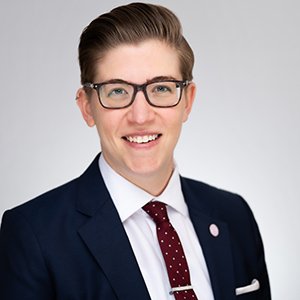 Erica T. Healey-Kagan ’05
Erica T. Healey-Kagan ’05
What inspired you to choose Cornell?
I grew up visiting Ithaca, and some of my fondest childhood memories are from Cornell events, including Reunion and Homecoming. When it came time to apply to college, I began to see Cornell in an even more positive light. I felt inspired by the university’s commitment to produce changemakers, and especially the College of Human Ecology’s interdisciplinary approach to solving real world problems. As a native New Yorker, I also felt connected to the land grant mission and the university’s close collaborations with the State of New York. I felt incredibly proud to have the opportunity to become a part of the Big Red family and Cornell’s founding principle of “… any person … any study.”
Why is it important to ensure Cornell is accessible to all, at an affordable cost? How can trustees and alumni help address this priority?
I have always felt incredibly grateful to have had the opportunity to attend Cornell and to not only benefit from all the wonderful experiences I had as a student, but also to become a part of such a dedicated and impactful alumni community. As alumni, our donations to the Cornell Annual Fund and scholarship opportunities help to sustain Cornell’s ability to attract the best and brightest students, regardless of their socio-economic status. And the Board of Trustees provides strategic leadership to ensure we continue to build our endowment and meet our goals for accessibility and affordability. These joint efforts are crucial to maintaining the university’s ability to continue its legacy of producing leaders and innovators for generations to come.
How can trustees and alumni contribute to creating a sense of belonging and community, both on campus and off?
We can all work together to ensure that the important work we do to advance diversity and equity goes hand-in-hand with the equally important efforts to ensure inclusion and belonging. As a student, I was proud to work with Vice President Susan Murphy and members of the Board of Trustees to amend the university’s non-discrimination policy to add gender identity and expression. The Board of Trustees plays an important role in reviewing the university’s policies to ensure they reflect our values. In doing so, they establish the baseline for civil discourse and engagement, both on campus and off, to ensure a safe, inclusive, and respectful environment for all students, faculty, and staff.
What excites you about the future of the university?
I think a shorter answer would be what doesn’t excite me about the future of the university! Every time I meet with students, I am constantly impressed by their determination to not only advance their own lives but also the lives of their communities and the world at large. I am also motivated every time I hear about the incredible work our alumni continue to do throughout the world. Cornell’s continual growth and innovation, including new ventures such as Cornell Tech, the Ann S. Bowers College of Computing and Information Science, and the Jeb E. Brooks School of Public Policy are nothing short of remarkable. And the university’s leadership in the face of unprecedented challenges makes me proud to be a Cornellian each and every day.
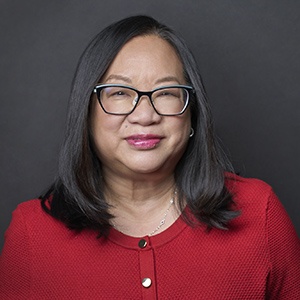 Ginger K. So ’79
Ginger K. So ’79
What inspired you to choose Cornell?
I attended the high school summer program at Cornell and fell in love with the mix of tradition and cutting-edge research on a gorgeous campus. The Cornell students I met were engaging and encouraged me to apply. I went to a small high school with 160 graduating seniors. My school couldn’t offer many electives, and I wanted more course choices. Even though my parents didn’t graduate from college, I felt I could navigate Cornell because everyone was helpful. Cornell also offered a generous financial aid package.
I enrolled in the College of Arts and Sciences and graduated with a government major. I took classes in the College of Agriculture and Life Sciences, the College of Human Ecology and the School of Industrial and Labor Relations, taking advantage of Cornell’s extensive course selection. And I built my own community, making friends from freshman send-off through graduation and beyond. As a graduate returning to campus, I still feel welcomed to a place that powers potential.
Why is it important to ensure Cornell is accessible to all, at an affordable cost? How can trustees and alumni help address this priority?
Without financial aid, I could not have attended Cornell; Cornell changed my life trajectory. Our student body should not be limited to those who can afford it. Trustees provide direction to support programs and scholarships that attract the most talented students. Trustees can also provide direction on programs that strengthen the tie between university and alumni to promote giving.
In my extensive volunteer experience, I’ve strived to keep our alumni community involved. I’ve learned that strengthening regional and affinity groups is paramount because we all share the common goal of keeping Cornell strong. I first consider what ties alumni to Cornell and consider how to deepen the connection in fun ways. If elected, I would advocate for support of programs to expand alumni connections to students. This financial or staff support might enable regional clubs, affinity groups, and Cornell-affiliated groups to plan more programs to engage more alumni.
How can trustees and alumni contribute to creating a sense of belonging and community, both on campus and off?
Do you remember being a student, and how stressful it was to study, eat, sleep, study, repeat? And worrying that you would not find the perfect internship, or a job? Trustees can provide strategic support for programs that connect students to alumni. Trustees can further connections between campus clubs and alumni with shared interests, and support students seeking alumni mentorship. Alumni can help reduce stress and encourage a sense of belonging through mentorship, and by sharing stories about work or Cornell experiences so students feel supported. I’ve worked with Mosaic and local clubs to financially support student activities, bringing together alumni groups that don’t know each other and encouraging them to become active Cornellians. I have invited alumni of all backgrounds to the Cornell Asian Alumni Pan-Asian Banquet, featuring Asian customs, which become a fun annual Cornell tradition. I learn new perspectives from the students and alumni.
What excites you about the future of the university?
I am excited about the discoveries and research our students and faculty undertake. We face global complex challenges that Cornell can uniquely challenge because of its interdisciplinary approach across multiple campuses. An example is Cornell’s approach to AI. I am fascinated that AI collaboration occurs across the Ithaca campus, Cornell Tech, and Weill Cornell Medicine in NYC and that it has applications for sustainable agriculture, improved urban design, and personalized medical health. My recent career has been in environmental sustainability, so I am excited about how AI can transform sustainability, one of the most critical issues for future generations. At the same time, we need to address AI’s computing costs and environmental footprint, and how to responsibly use these technologies. Cornell faculty are leveraging strengths in philosophy, ethics, and public policy. I know I have much to learn from this research.
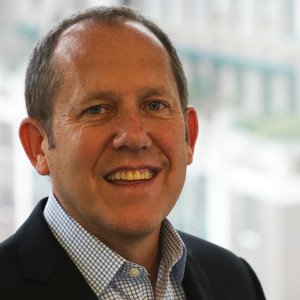 David H. Steward ’79
David H. Steward ’79
What inspired you to choose Cornell?
When I was in high school in Ohio, I really had no idea what or who I wanted to be when I grew up. I was looking for a school with a wide wide range of studies. One of my litmus tests for universities was: “Do they offer Chinese language studies?” Nowadays that may not be so unusual. In the ’70s, Chinese was offered in very few schools, but Cornell had it. Academic excellence was also a key requirement, and of course Cornell has outstanding faculty. And last, I was interested in meeting a broader array of people than I’d found in my small-town suburb west of Cleveland. Cornell met, and frankly, exceeded each of these criteria.
Attending Cornell is the best decision I have ever made.
Why is it important to ensure Cornell is accessible to all, at an affordable cost? How can trustees and alumni help address this priority?
I am so proud of the first-generation and low-income student programs Cornell has implemented, not only to ensure access, but importantly to support success for these students. Cornell would have been impossible for me to attend without work study and scholarship. I am ever-grateful for that support, and very glad that Cornell continues to make a great education accessible. Trustees can help support this goal by ensuring that Cornell is run efficiently to keep down tuition costs, and by providing support through grants and work study to enable access to all. As alumni, we can support the university and students through gifts and volunteering and encouraging talented students to choose Cornell.
How can trustees and alumni contribute to creating a sense of belonging and community, both on campus and off?
When I speak to prospective students as a Cornell Alumni Admissions Ambassador Network (CAAAN) volunteer, I share with them that Cornell is not only a large university, but also a rich collection of many small communities. I found my people while jogging, participating in political action, living at Watermargin Cooperative, learning in the psychology department, even while watching Star Trek in the dorm lounge! It’s what makes Cornell a very warm, welcoming place despite its size.
Out of the gate, the freshman experience at Cornell puts a diverse array of students into shared living environments. I met so many different people in my freshman dorm—when you live side-by-side with people who are different from you it is so much easier to discover what you have in common rather than be focused on your differences.
What excites you about the future of the university?
I’m excited about Cornell’s future because we’ve always looked forward while so many other institutions seem focused on their history. The recent expansions of Cornell Ann S. Bowers College of Computing and Information Sciences, the Cornell High Energy Synchrotron Source, and the Cornell Atkinson Center for Sustainability are great examples of how Cornell is preparing today for tomorrow.
Our nimbleness allows us to offer an array of academic disciplines and to attract a broad student population. My own journey illustrates the opportunities enabled by a Cornell education. After exploring English literature and pre-med, I got a degree in psychology at Cornell. After an MBA at the University of Chicago, I headed into media where I was president of TV Guide, COO at Martha Stewart Living, and now lead a consulting practice.
Since its founding, Cornell’s focus on “… any person … any study” means we’re nimble by design, well-positioned for an ever-evolving future.

